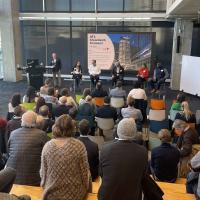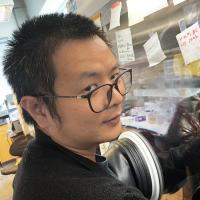4 min read
We're celebrating the launch of the Georgia AIM Mobile Studio with speakers, student groups, and accessible technology.
4 min read
Itamar Kimchi and Sourabh Saha each received $875,000 for their pioneering work in quantum materials and fusion energy.
2 min read
Beril Toktay, interim executive director of the Brook Byers Institute for Sustainable Systems, director of the Ray C. Anderson Center for Sustainable Business, and Regents' Professor in Operations Management, discusses achieving net zero and provides examples of how some industries can reduce carbon emissions to combat climate change.
5 min read
Tech AI and CSSE have partnered to bridge the gap between academia and industry, advancing scalable AI solutions across various sectors through cutting-edge software engineering and collaborative innovation.
4 min read
In January 2024, the launch of the Atlanta CleanTech Connect social marked a pivotal moment in the city's journey towards achieving its clean energy goals.
4 min read
Ray Hung, a CS master's student, has developed a tool called The Socratic Mind, an AI-powered oral assessment platform leveraging Socratic questioning
5 min read
A research team led by Georgia Tech’s Hailong Chen has developed a low-cost iron chloride cathode for lithium-ion batteries, which could significantly reduce costs and improve performance for electric vehicles and large-scale energy storage systems.
4 min read
Ph.D student Austin P. Wright wins a best paper runner-up award at an international conference for an algorithm used on the Mars Perseverance Rover than can be used in applications in earth science and other fields.
5 min read
The research projects aim to create models that advance our understanding of immune system function and aging and have the potential to transform vaccine development.
2 min read
The former interim chair for the AE School has been elected an International Fellow for his contributions to the aerospace and energy professions.















